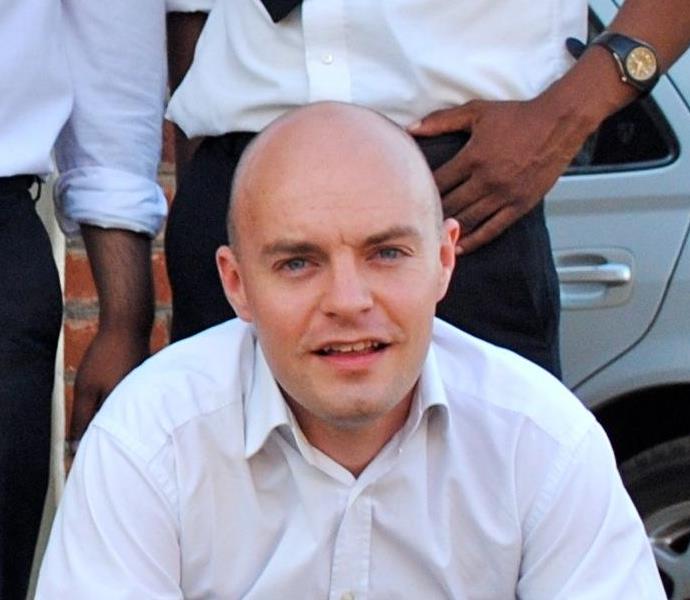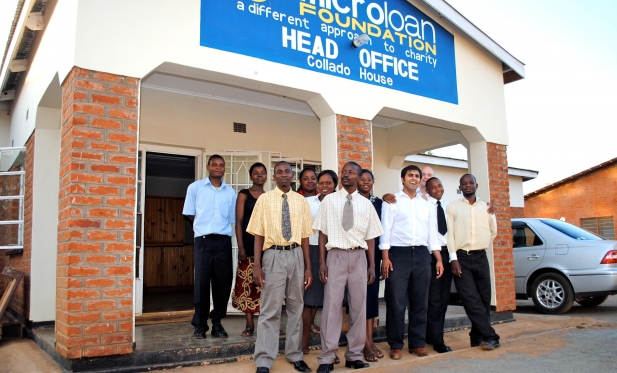Name
Colin (ACA)
Day job
Finance Manager
Assignment

After years of success in the private sector, Colin wanted to take some time out from work. Having already supported charities by organising a sponsored bike ride from London to Paris, he found it only natural that he should seek some more voluntary work in a part of the world he had never visited before. Colin took an assignment with AfID that saw him support the MicroLoan Foundation in Malawi for 3 months as an interim Finance Manager.
Colin soon became enamoured with the nature of the not-for-profit sector and the tangible aspect of the results; he found it rewarding to see his work directly impacting the lives of the communities his chosen organisation supported. The volunteering experience he had undertaken made it comparatively easy for him to make the transition into a permanent role working with a charity organisation. It wasn’t long before he found himself managing a finance team for the Chelsea FC Foundation, a position he rose swiftly to after being the sole member of the finance team upon his arrival. We caught up with him to see how he’d been getting on and how his volunteer placement helped him.
Q: Can you tell us a little about your current role and how it differs to your last position? Perhaps outline a typical day in your new role?
One of the best things about the role (cliché alert!) is that there is no such thing as a typical day. For example on Friday I met the new Chairman of Chelsea Ladies FC and discussed sponsorship opportunities, then collected a small donation transferred via Western Union from Australia before resolving some payroll queries and discussing the cleaning contract for our offices with the Chelsea FC Facilities manager.
Obviously there are regular tasks but these are set into context by seeing the work that the organisation does - something I didn't feel about my role in audit which often felt like turning a handle and not seeing any impact of my work.
Q: Many accountants worry about the transferability of their skills across sectors, have you found any specific experience from your past roles has been particularly relevant in your new role?
I don't see this as a concern at all, in fact as I am now one of only a few colleagues with an accounting background if anything I feel my skills are highlighted more now than there were before. I would say that my experience of my different firms' accounting systems through auditing has been very relevant as I have looked to improve systems and controls.
Q: Why did you choose to work in the non-profit sector?
Again, another cliché (but it is true); I was keen to see that my work had a real impact on the organisation I was working for and that in turn the organisation was able to have an impact on real people. As an auditor it often felt that only shareholders, if anyone at all, were benefiting from my work.
Q: You volunteered previously in Malawi with a micro-finance organisation; do you feel this experience helped you gain and prepare for this role?
I think the experience of being outside of practice & the finance environment taught me to value the skills I have gained and to learn that these are valuable to others. Instead of worrying about whether I have the complete set of skills it was a case of applying what I have to its best effect, and that was able to have a big impact on the organisation in Malawi.
Q: What would you say are the pros & cons of your decision to work in the charity sector?
There's no getting away from the reduction in pay and also a less structured working environment (maybe more specific to my organisation) has made progression difficult. But the reasons for my move remain valid and I do not ever find myself regretting my decision to move into the sector.
Q: What would be your advice to other accountants considering a similar career change or looking to break into the sector?
Dipping your toe in the water via volunteering is such a good way to gauge whether a wholesale change is the way to go. Aside from the CV talking point, the experience gained is invaluable and even if the decision was that the charity sector is not for you then the placement will provide skills that will be beneficial in all aspects of work and life in general. If volunteering confirms a desire to move into the sector then the placement provides experience and allows charitable organisations to recruit with the confidence of knowing that you have committed to the sector.
Colin soon became enamoured with the nature of the not-for-profit sector and the tangible aspect of the results; he found it rewarding to see his work directly impacting the lives of the communities his chosen organisation supported. The volunteering experience he had undertaken made it comparatively easy for him to make the transition into a permanent role working with a charity organisation. It wasn’t long before he found himself managing a finance team for the Chelsea FC Foundation, a position he rose swiftly to after being the sole member of the finance team upon his arrival. We caught up with him to see how he’d been getting on and how his volunteer placement helped him.
Q: Can you tell us a little about your current role and how it differs to your last position? Perhaps outline a typical day in your new role?
One of the best things about the role (cliché alert!) is that there is no such thing as a typical day. For example on Friday I met the new Chairman of Chelsea Ladies FC and discussed sponsorship opportunities, then collected a small donation transferred via Western Union from Australia before resolving some payroll queries and discussing the cleaning contract for our offices with the Chelsea FC Facilities manager.
Obviously there are regular tasks but these are set into context by seeing the work that the organisation does - something I didn't feel about my role in audit which often felt like turning a handle and not seeing any impact of my work.
Q: Many accountants worry about the transferability of their skills across sectors, have you found any specific experience from your past roles has been particularly relevant in your new role?
I don't see this as a concern at all, in fact as I am now one of only a few colleagues with an accounting background if anything I feel my skills are highlighted more now than there were before. I would say that my experience of my different firms' accounting systems through auditing has been very relevant as I have looked to improve systems and controls.
Q: Why did you choose to work in the non-profit sector?
Again, another cliché (but it is true); I was keen to see that my work had a real impact on the organisation I was working for and that in turn the organisation was able to have an impact on real people. As an auditor it often felt that only shareholders, if anyone at all, were benefiting from my work.
Q: You volunteered previously in Malawi with a micro-finance organisation; do you feel this experience helped you gain and prepare for this role?
I think the experience of being outside of practice & the finance environment taught me to value the skills I have gained and to learn that these are valuable to others. Instead of worrying about whether I have the complete set of skills it was a case of applying what I have to its best effect, and that was able to have a big impact on the organisation in Malawi.
Q: What would you say are the pros & cons of your decision to work in the charity sector?
There's no getting away from the reduction in pay and also a less structured working environment (maybe more specific to my organisation) has made progression difficult. But the reasons for my move remain valid and I do not ever find myself regretting my decision to move into the sector.
Q: What would be your advice to other accountants considering a similar career change or looking to break into the sector?
Dipping your toe in the water via volunteering is such a good way to gauge whether a wholesale change is the way to go. Aside from the CV talking point, the experience gained is invaluable and even if the decision was that the charity sector is not for you then the placement will provide skills that will be beneficial in all aspects of work and life in general. If volunteering confirms a desire to move into the sector then the placement provides experience and allows charitable organisations to recruit with the confidence of knowing that you have committed to the sector.




